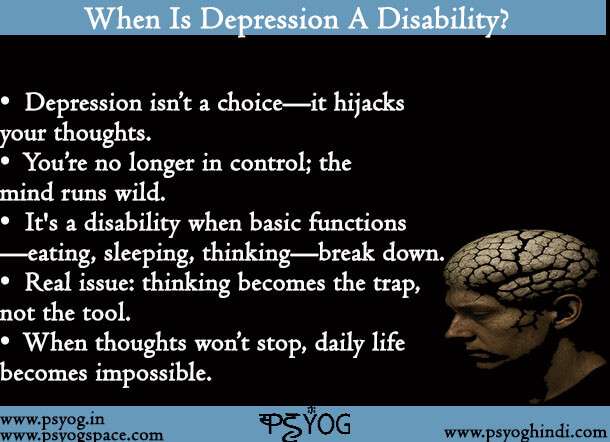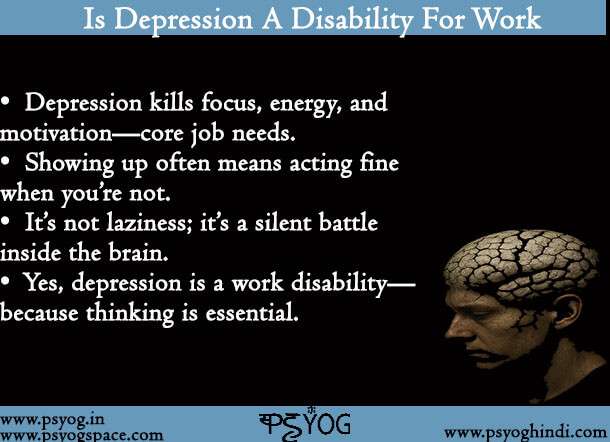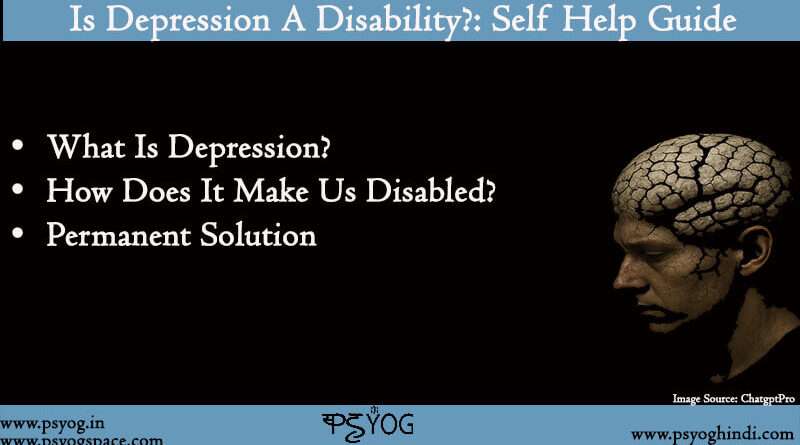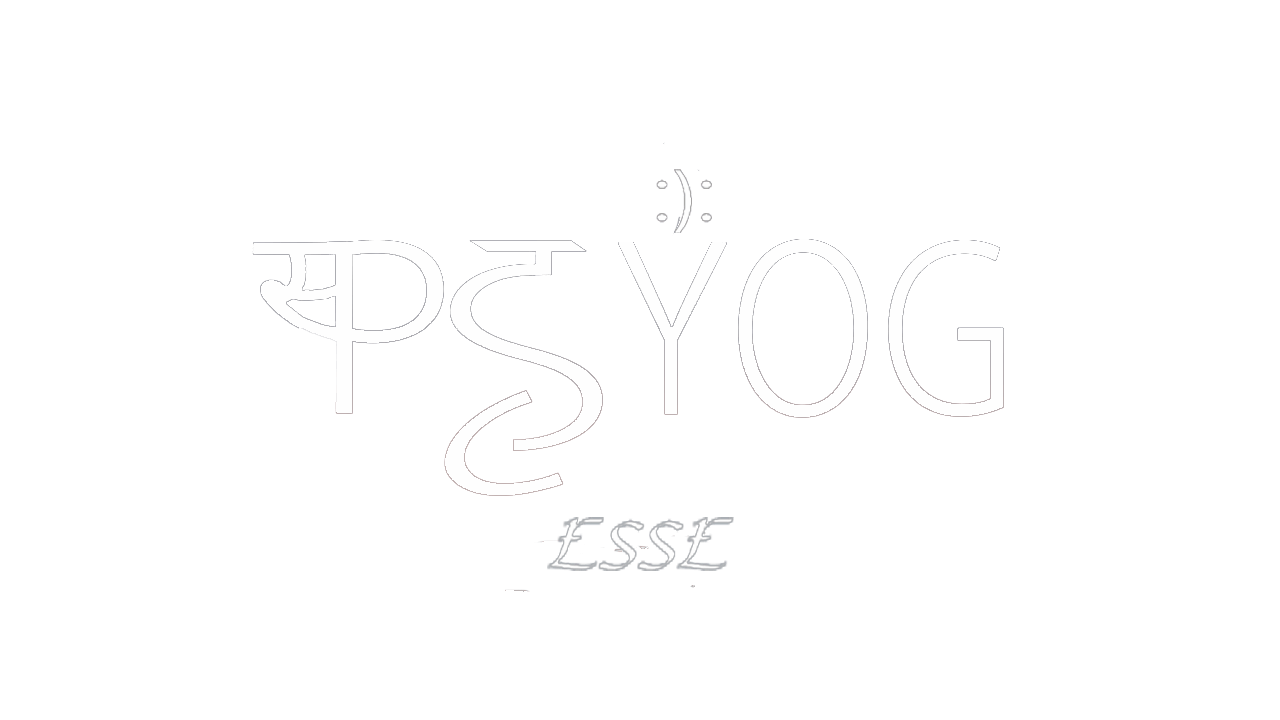Is Depression A Disability: When Is Depression A Disability For Work And Otherwise
Most people don’t get it. You try to explain, but the words fall short. You say you’re tired, but it’s not just that. You say you’re sad, but even that isn’t it. It’s like your brain turned against you. Like your thoughts aren’t yours anymore. So, is depression a disability?
It can be. It already is—for many. When you lose the ability to think clearly, to make simple decisions, to feel connected to what you’re doing… that’s not just having a bad day. That’s something else.
And when is depression a disability, really? Some people don’t even realize what they’re going through has a name. Or that they might qualify for help. Others wonder is depression a disability for work, because that’s where it hits hardest—on the job, at the desk, in the meetings, when you’re supposed to “show up” and feel nothing but numb.
We talk about this like it’s abstract. But it isn’t. It’s real. It’s people trying to survive in minds that won’t let them rest.
When Is Depression A Disability: Depression Means A Person Is Not Able To Think Out Of Choice. This In Itself Is A Disability. However, Experts Tag It As A Disability When…
Let’s stop pretending people would choose to feel this way. No one wakes up and decides to lose control of their own mind. That’s what makes it so scary.
Depression means you’re no longer steering the ship. Your thoughts run wild—fast, dark, endless. They interrupt you, wear you down, make you question everything. And you can’t shut them off. Even if you want to.
That alone—this lack of choice—is disabling. (Read: Depression and obsession. Song and deep meaning)
When is depression a disability in official terms? Doctors say it’s when your ability to function drops. When you can’t eat properly. Or sleep. Or think clearly. When it hurts to socialize or get out of bed. When daily life feels impossible.
But forget the paperwork for a second. The real answer? It’s a disability the moment you lose control over your thoughts. Why? Because thinking is everything. It’s what drives action. Without that, nothing works.
We’ve spent millions of years evolving this ability to think. It’s our superpower. And now? It’s become the thing that holds us hostage.
So when is depression a disability? When you’re trapped in your own head. When the thoughts don’t stop. When the silence feels too loud and your brain refuses to rest.
That’s when it becomes a disability.

Is Depression A Disability For Work
Try working when your brain won’t cooperate. When reading an email takes an hour. When you’re in a meeting but your mind is somewhere else—somewhere darker.
Work doesn’t slow down for mental health. The deadlines don’t care if you feel hollow inside.
Is depression a disability for work? Of course it is. How could it not be?
Most jobs expect consistency, energy, teamwork, focus. Depression chips away at every one of those. Some days, just getting out of bed feels like a battle. Showing up to work and pretending you’re okay? That’s acting. Exhausting acting.
And here’s the painful part—people think you’re lazy. Unmotivated. But it’s not that. You want to do well. You really do. But your brain just doesn’t follow. It’s like trying to drive with no fuel and a fogged-up windshield.
There are laws that say depression counts as a disability at work. Some companies make room for it. Accommodations. Time off. Flexibility. But most don’t. Or you’re too afraid to ask. Or you don’t even realize you need help.
But is depression a disability for work? Absolutely. Because work needs a mind that functions. And when yours doesn’t, the job feels impossible.
Still, there’s hope. Healing isn’t about forcing your mind to shut up. It’s about stepping back. Watching thoughts, not becoming them. Creating space between you and your thinking. When that happens, you can breathe again. Slowly, you start to choose again.

Conclusion
Is depression a disability? Yes. When it stops you from living the way you used to, when your thoughts don’t listen to you anymore, when joy disappears… yes, it is.
When is depression a disability? Not just when it’s written in a file. It’s when you can’t remember the last time you felt normal. When your brain refuses to cooperate. That’s when. (Read: Depression and existentialism)
And is depression a disability for work? Ask anyone who’s sat at their desk crying inside and smiling outside. The answer’s obvious.
But you’re not broken. You’re not beyond help. It might take time. It might take distance from the storm in your head. But it’s possible to come back.
Not to the old you—but to a new kind of clarity. One that knows the mind is a tool, not a prison. One that remembers: you are not your thoughts.
FAQs
What kind of depression qualifies for disability?
Depression means when a person is not able to think out of his choice, his mind is doing its own thing. This in itself is a disability at some level. However, when this inner disability makes it impossible for people to carry out their daily tasks, then it is said that the person needs help.
However, the only long term solution is to create a distance between us and our mind. Only this can ensure that we don’t live a compulsive life.
Can depression make you unable to work?
Any kind of action we take initially manifests as a thought in our mind. This means, we need to have a clear thought if we want to be effective in the world. Depression means when a person is not able to think out of choice, rather his mind is going haywire. In this case, efficiency of a person would surely come down.
So yes, depression definitely can affect your work, however, through creating a distance between you and your mind, this problem can be solved.



